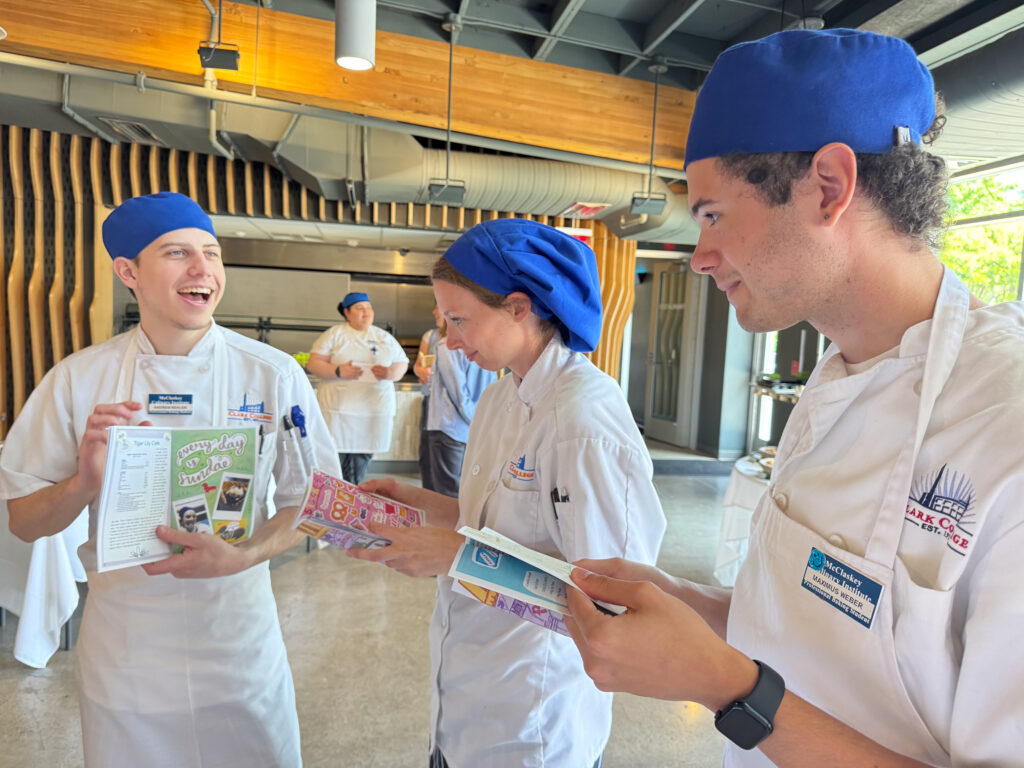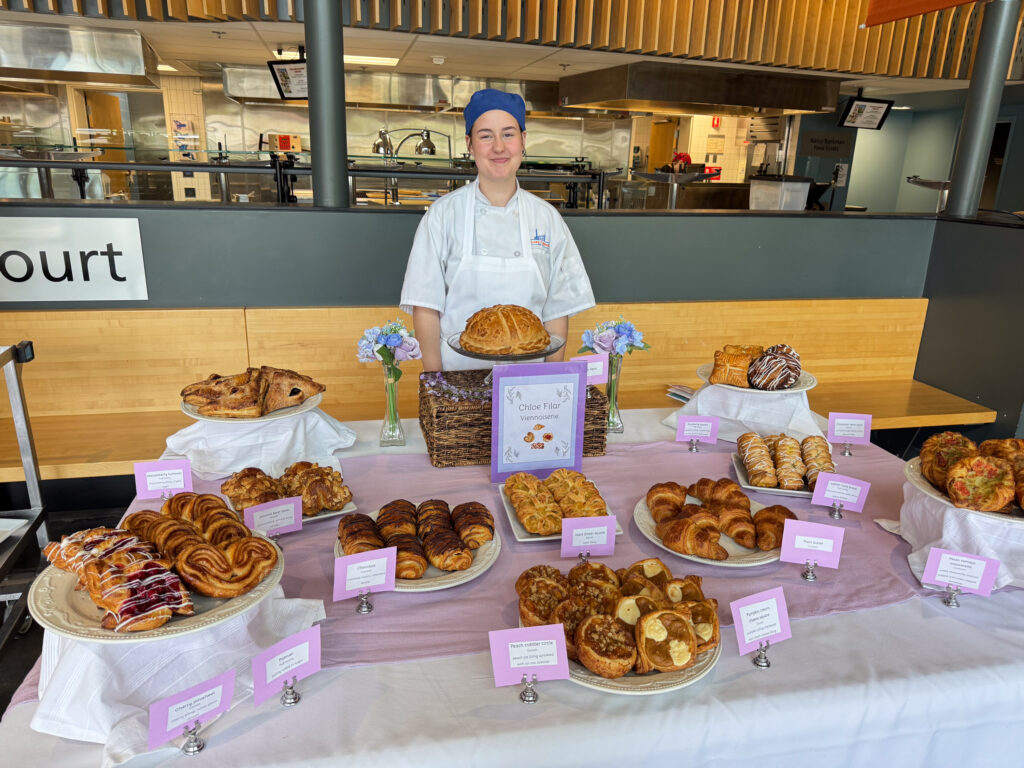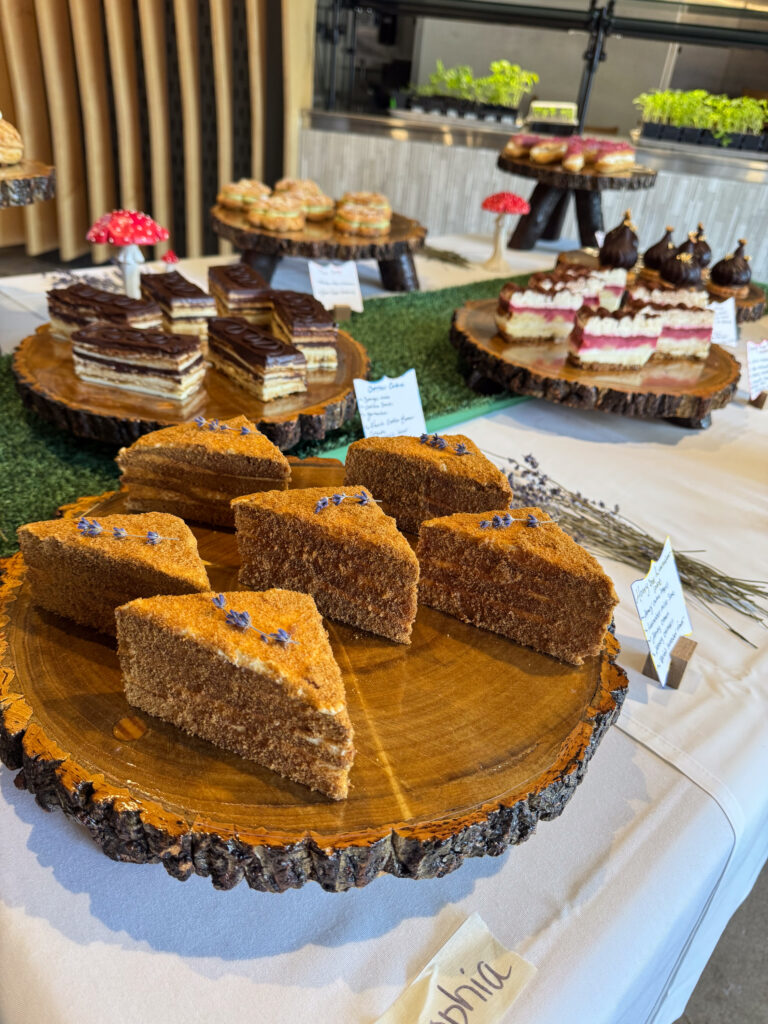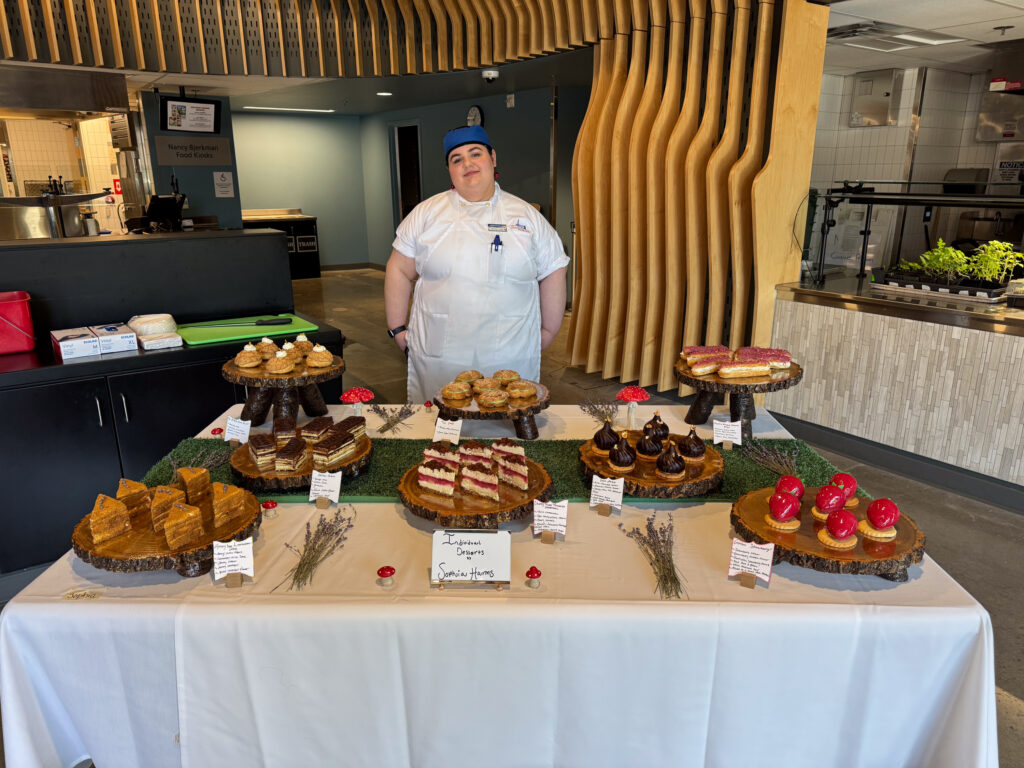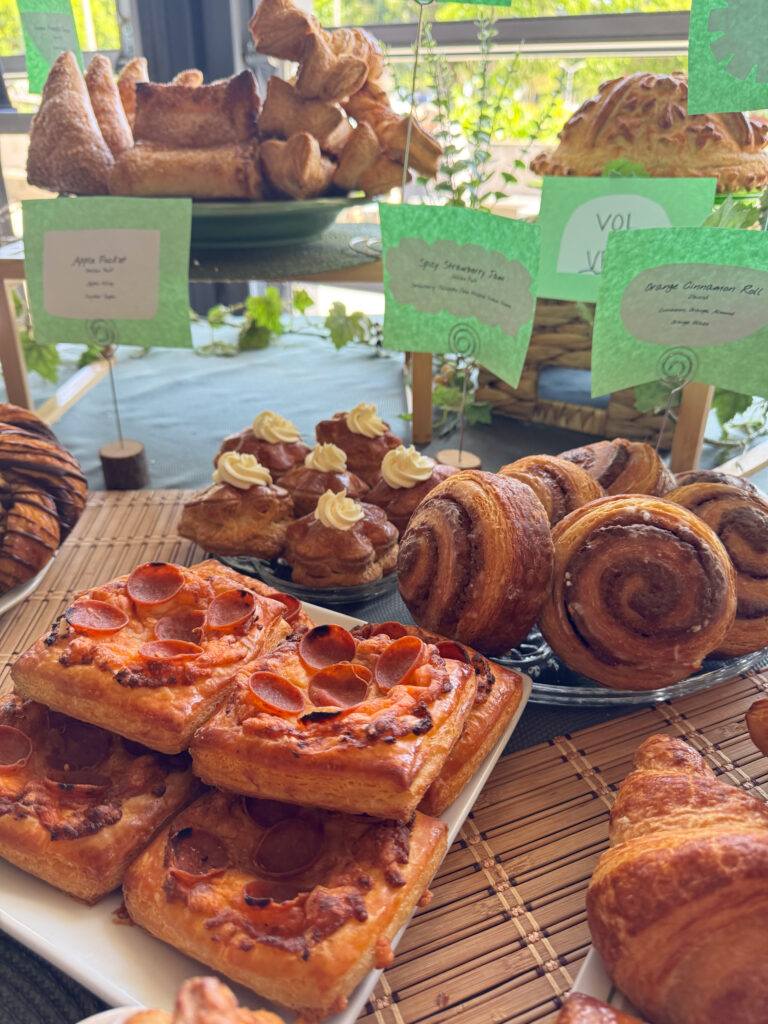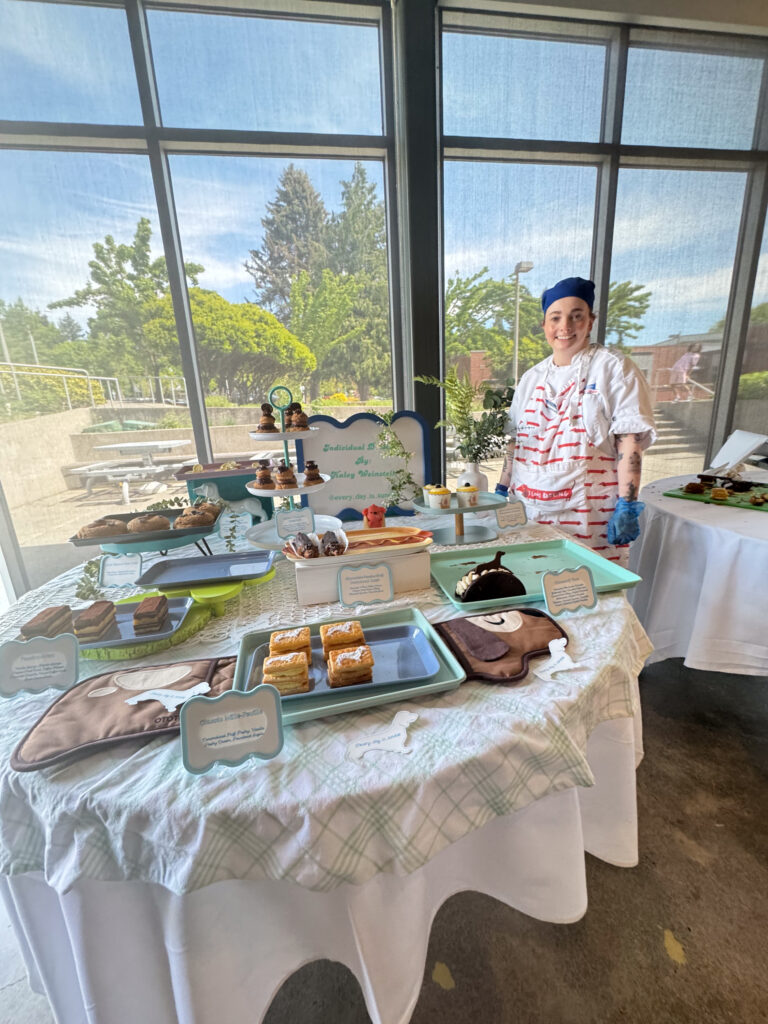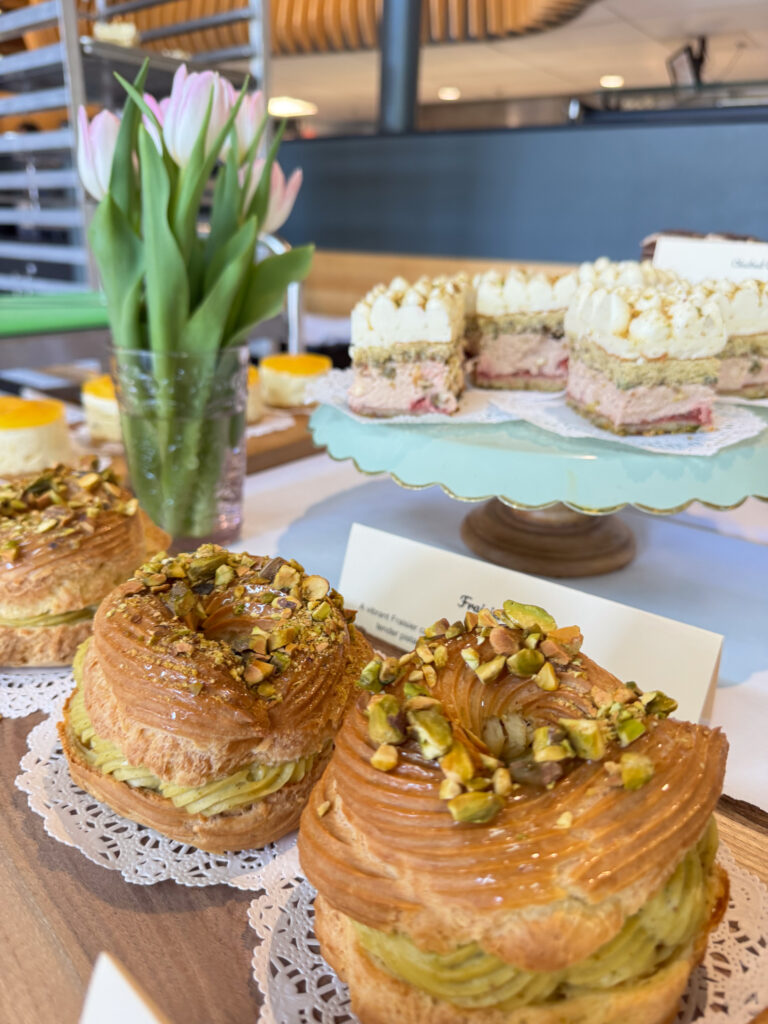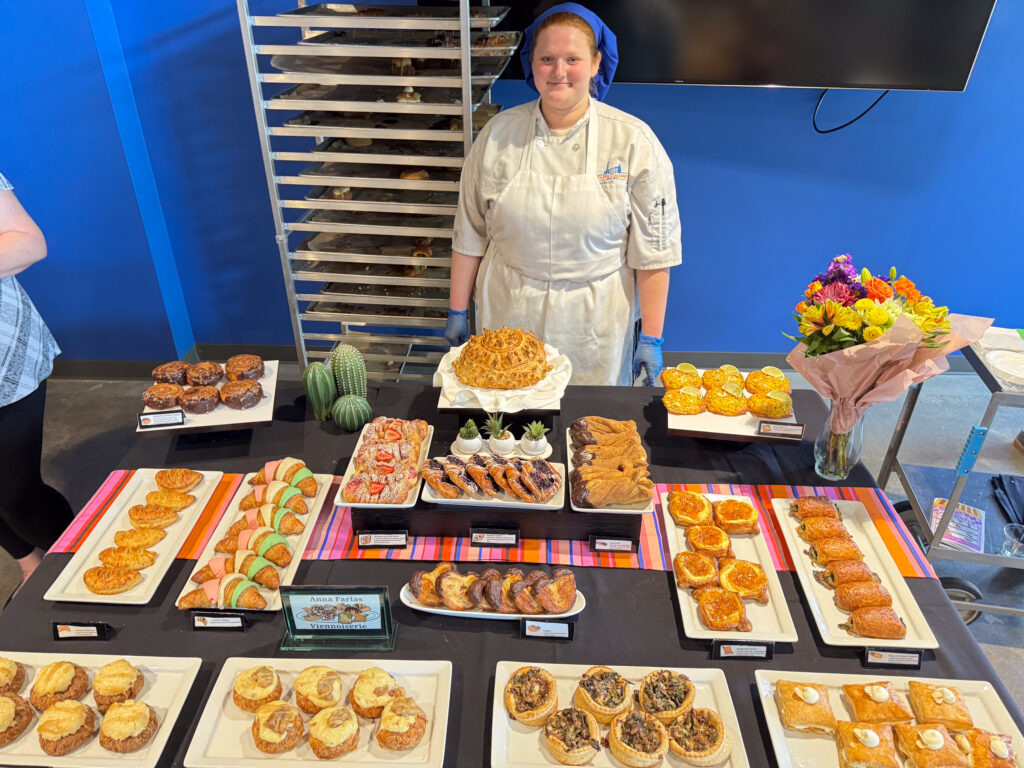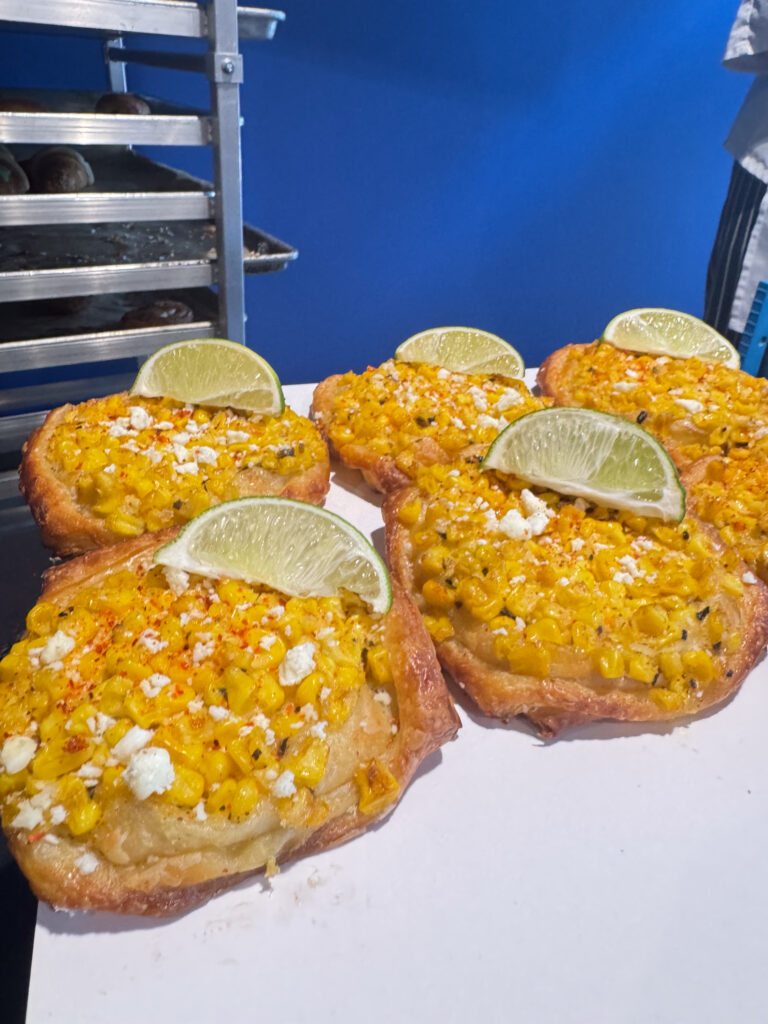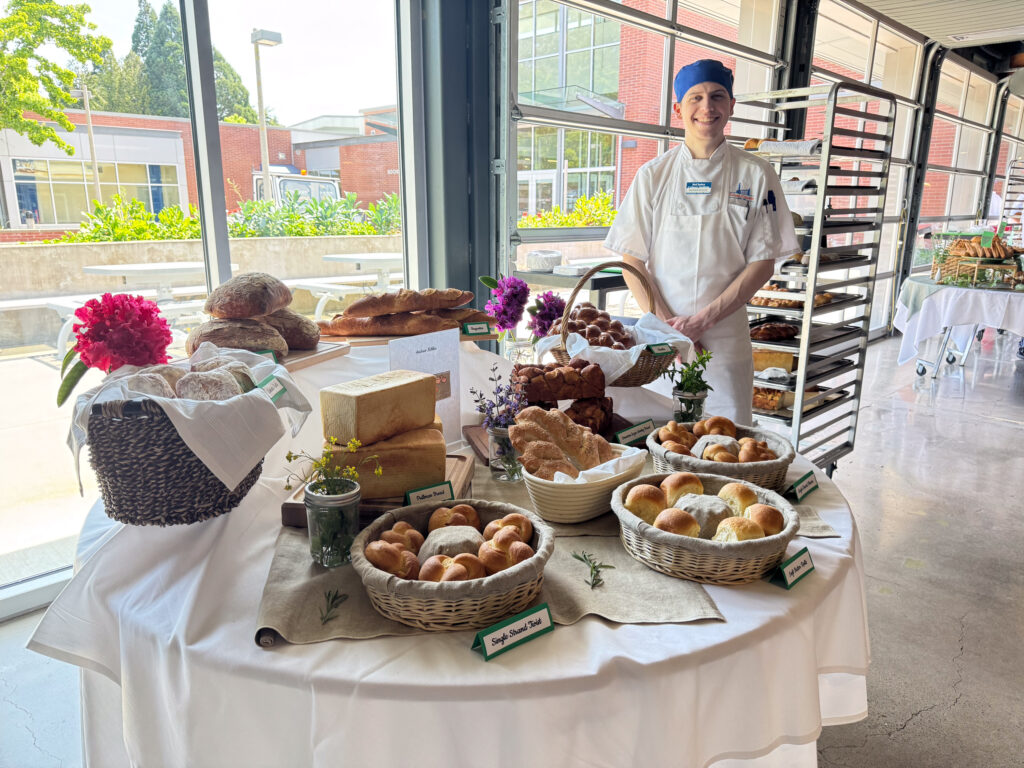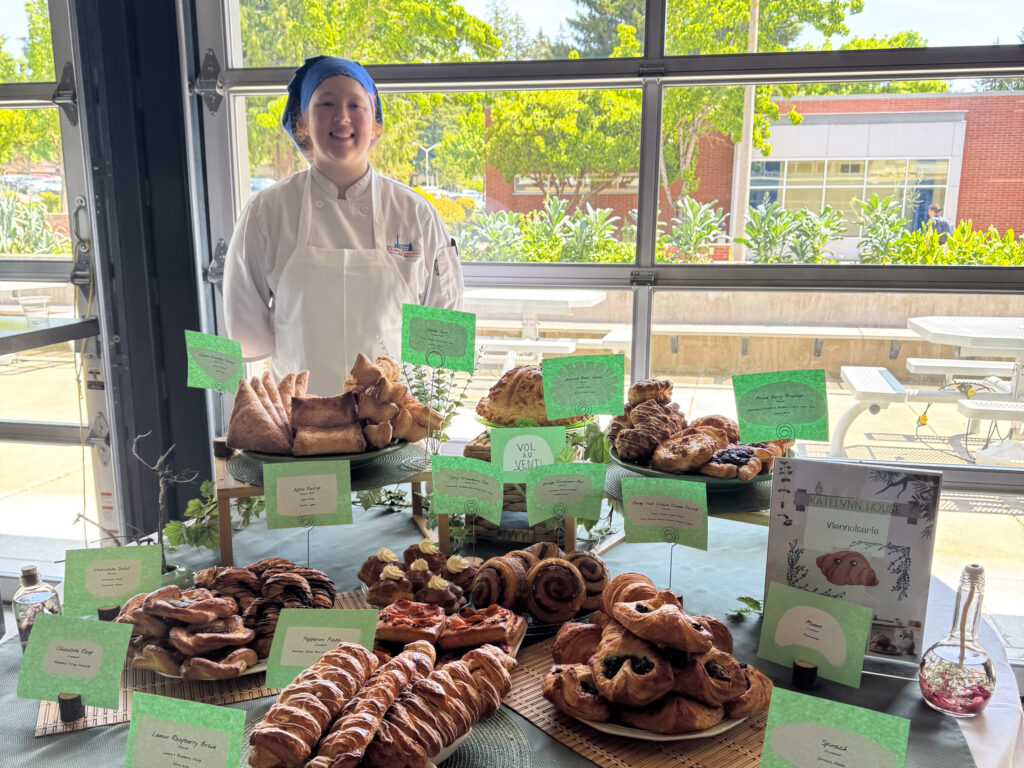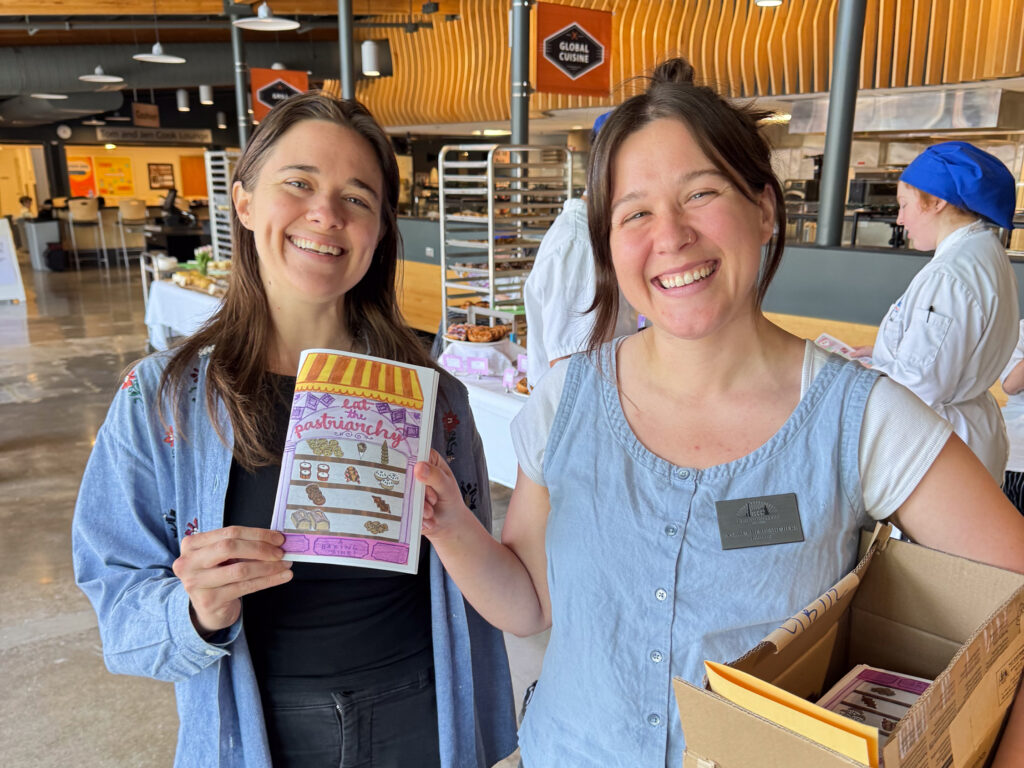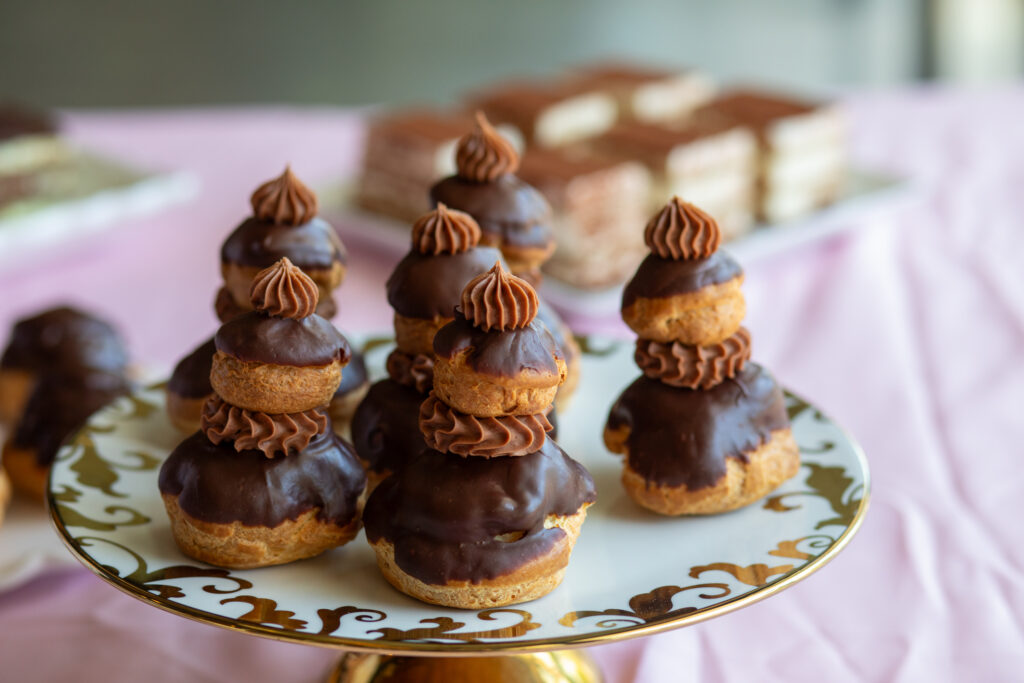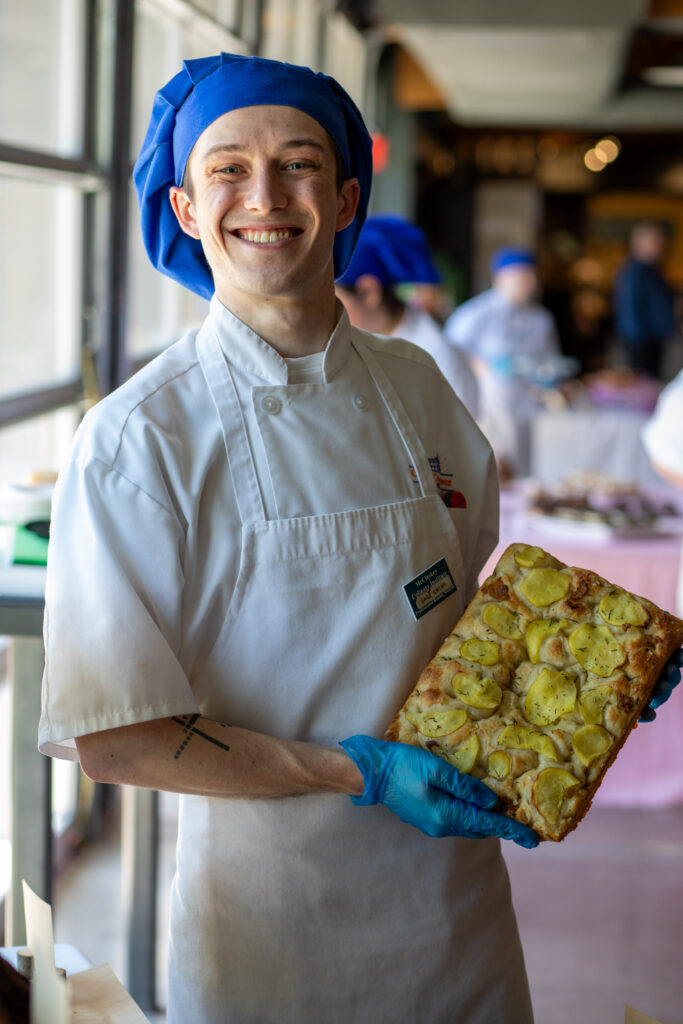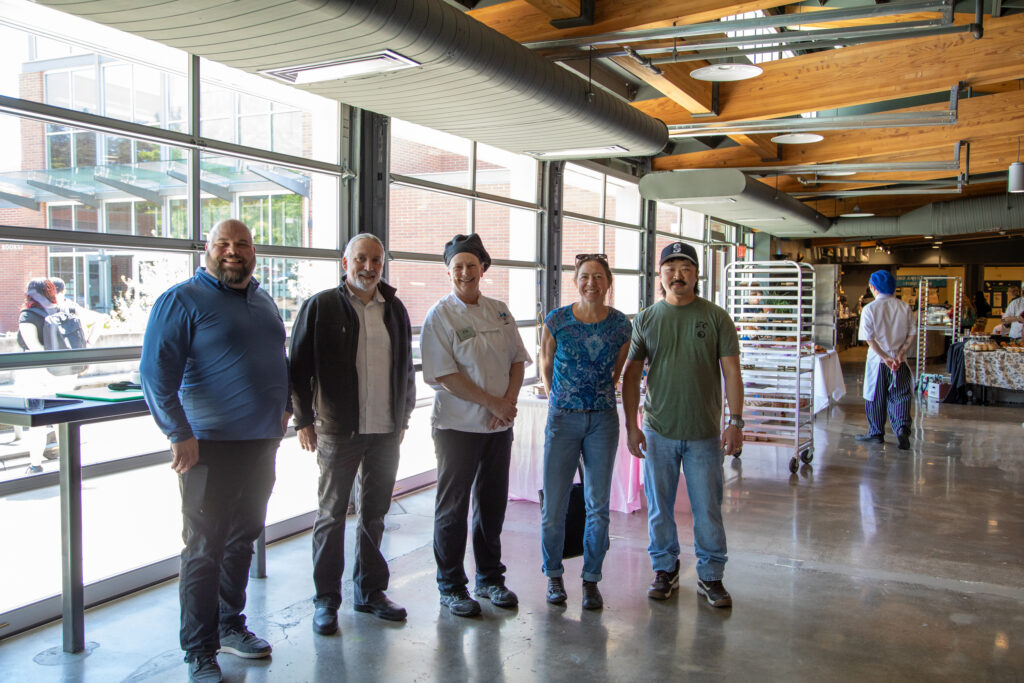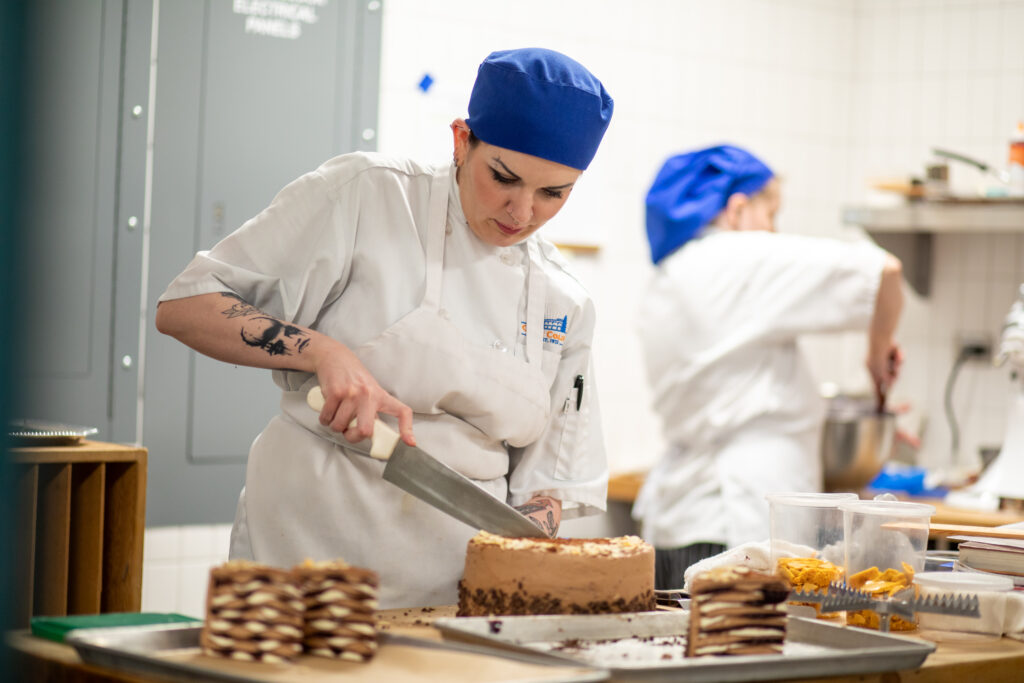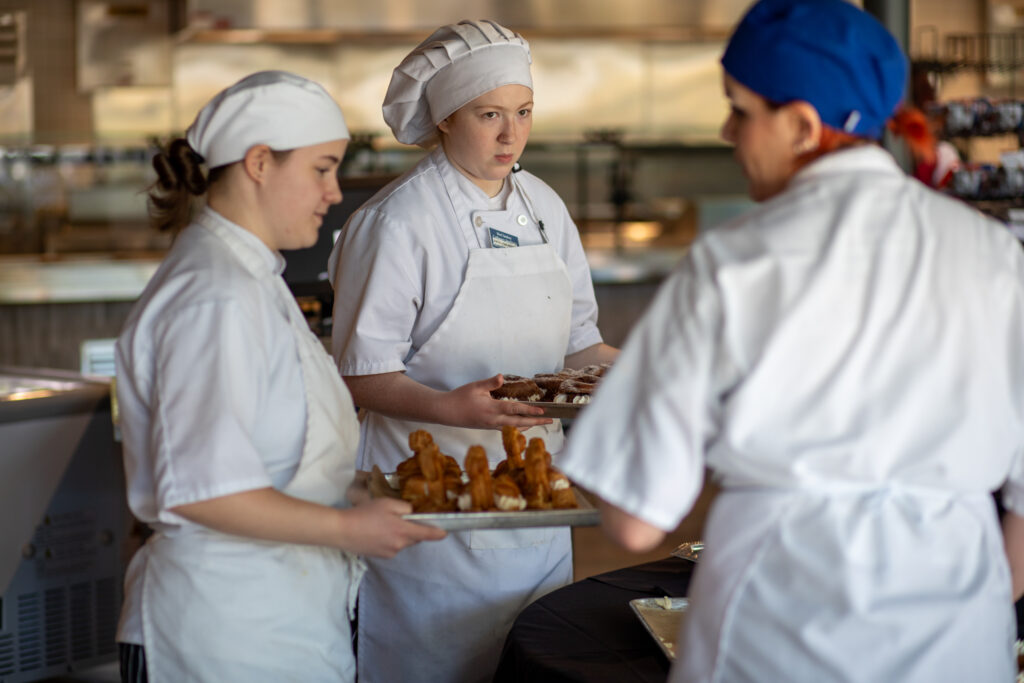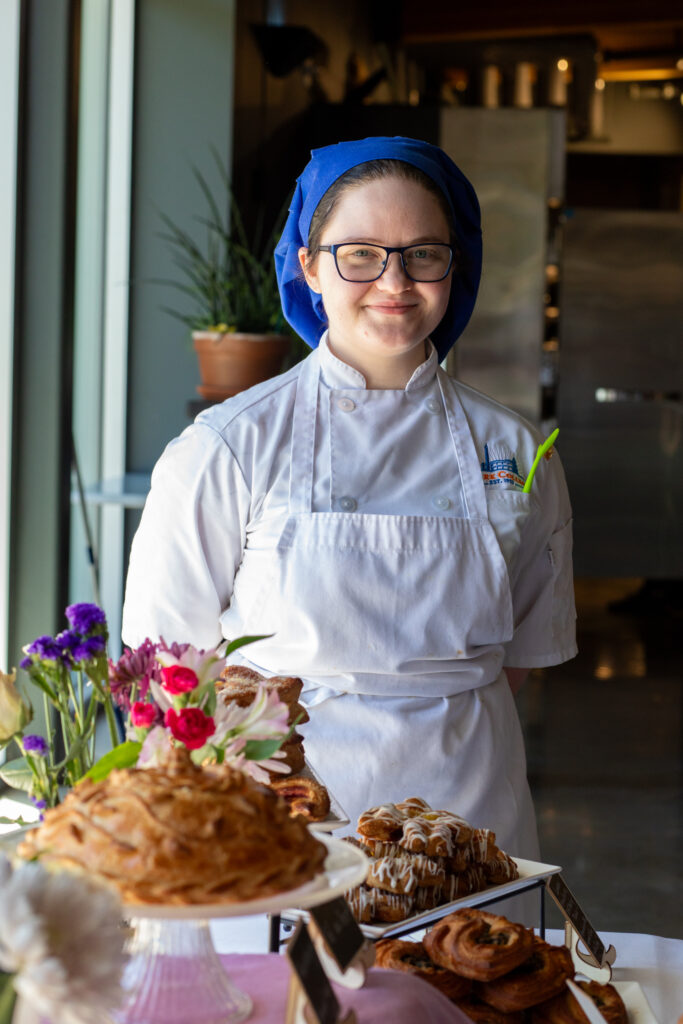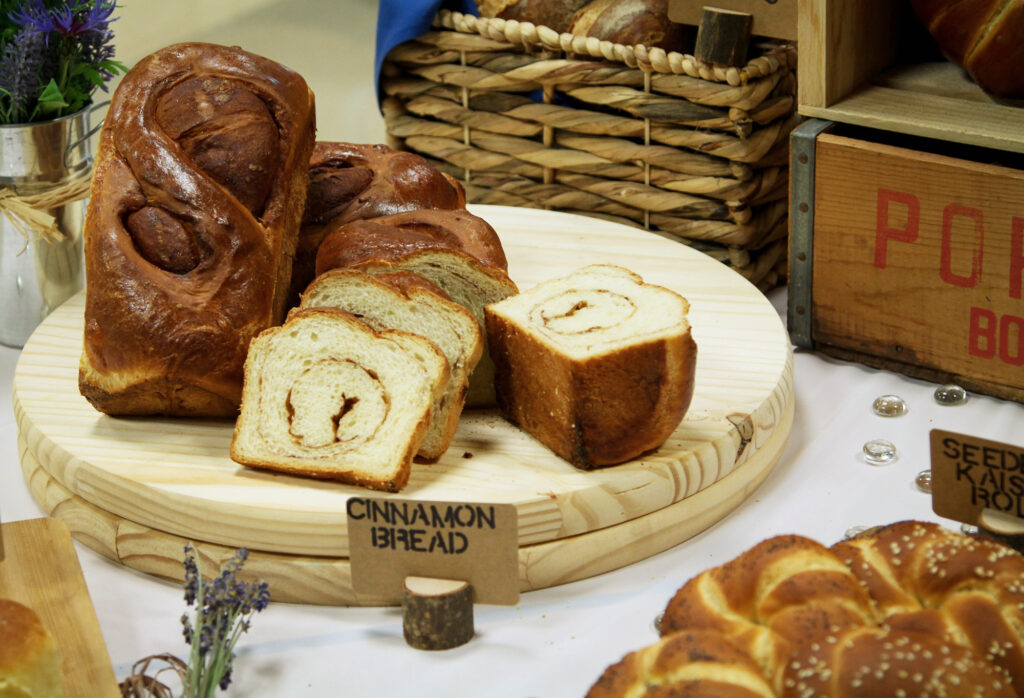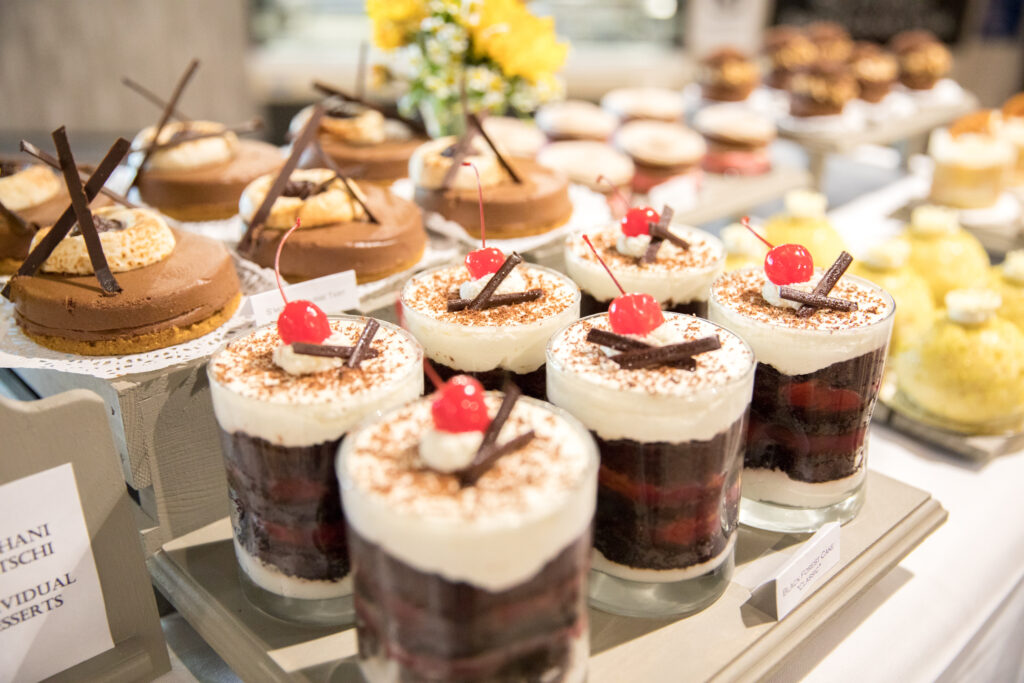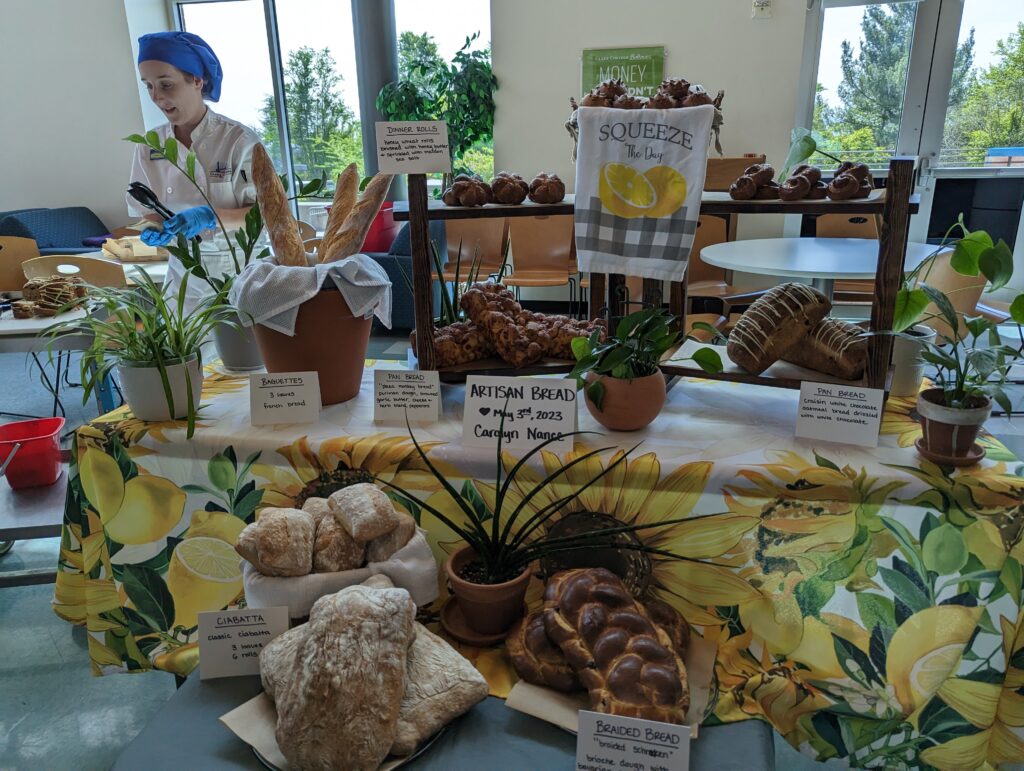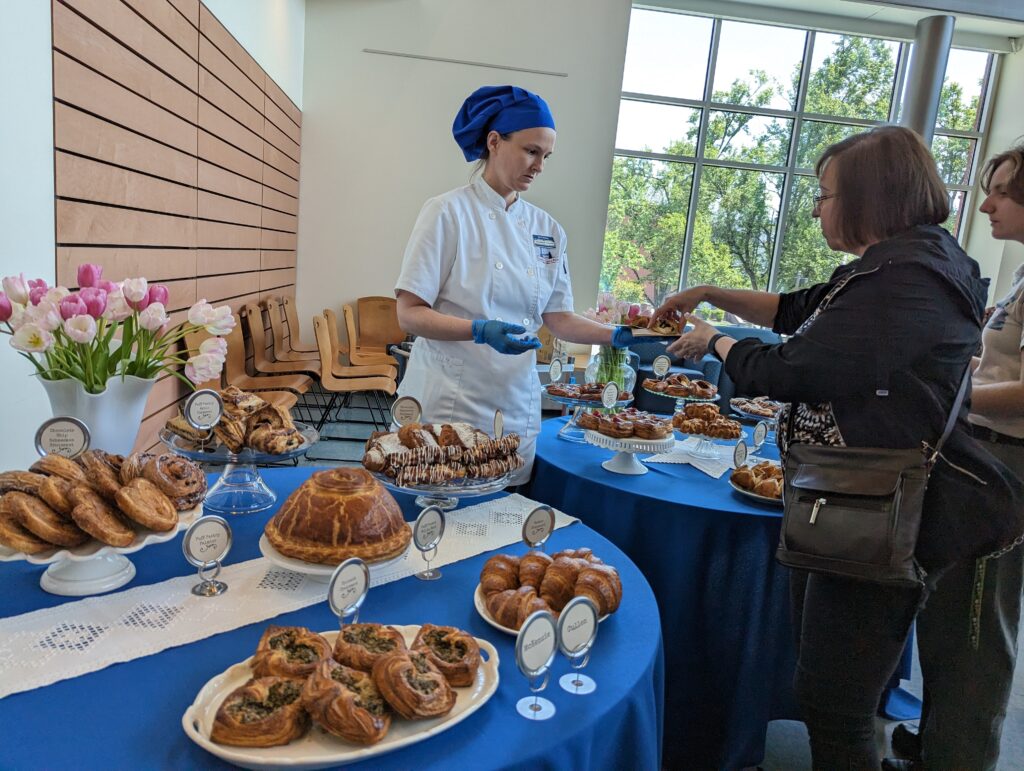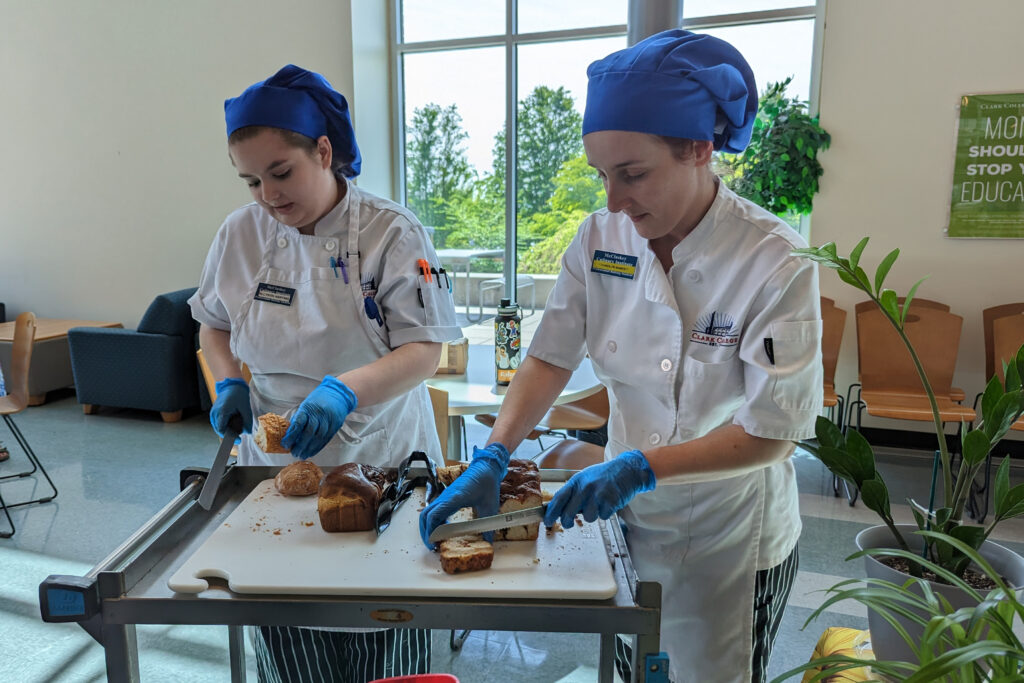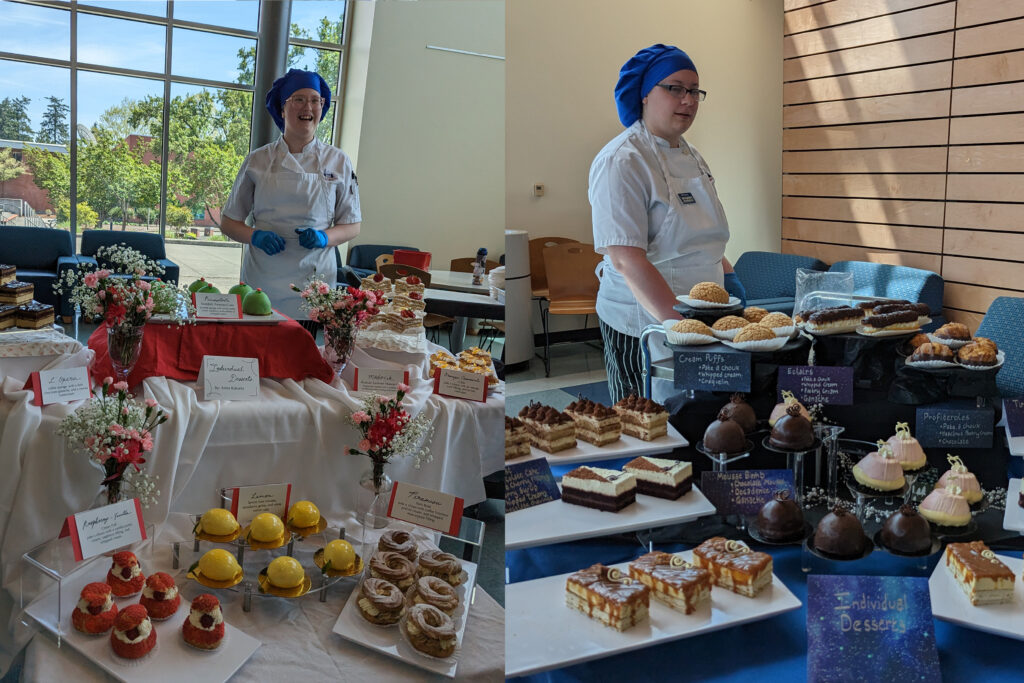Science Meets Spice at STEM Camp
A wet sponge. Slime. Something that looks like it belongs in the ocean. All were accurate descriptions high school students gave of seitan dough – a plant-based meat substitute – during this year’s STEM Camp. Their hands squished the wet mixture, kneading the dough in a bowl of water as Chef Melanie demonstrated the science behind the wheat-gluten substance.
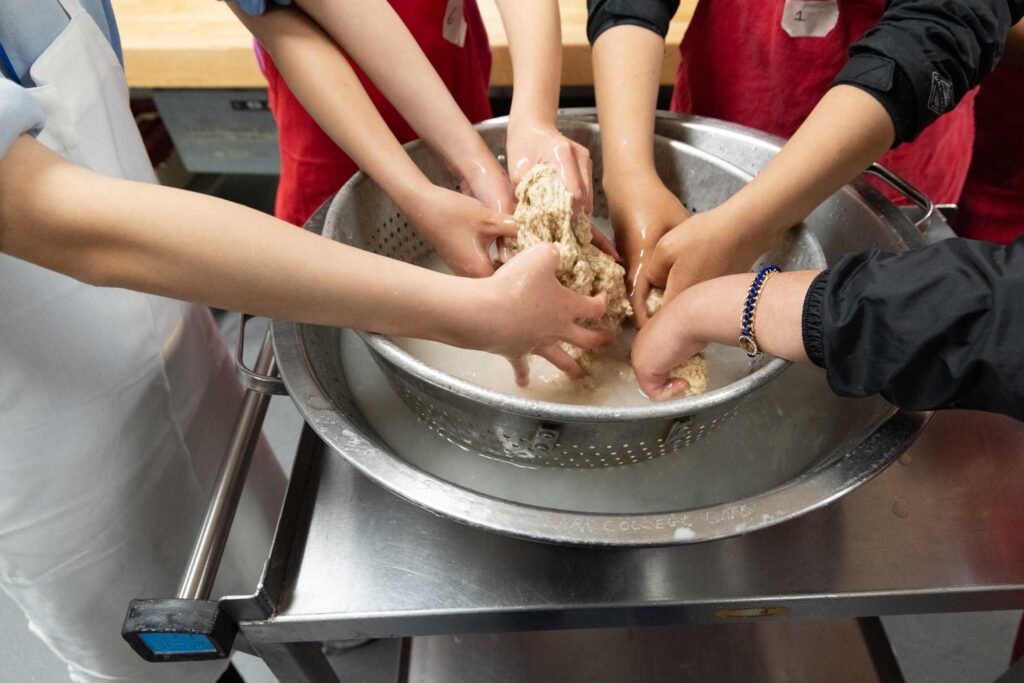
“First, we play with it. Then we eat it,” joked student chef Katelynn, as participants began to pull the seitan dough apart.
It wasn’t your average science lesson, but that’s because this wasn’t an average science camp. STEM-Licious Camp was a fusion of science, engineering, and the culinary arts, all wrapped up in one exciting week for local high school students. Now in its fourth year, the camp has formed a new collaboration with the culinary department to teach STEM through a delicious hands-on experience.
Funded by Guided Pathways with generous support from NW Wine & Food Society, Taco Bell Foundation Community Grant, and Pacific Power Foundation, STEM-Licious brought young scientists into an environment where learning was active, full of flavor, and just a little bit messy.
Campers were divided into two teams that alternated sessions every day:
- Team Carver’s Peanuts (named after pioneering agricultural scientist George Washington Carver)
- Team McClintock’s Corn (named after Nobel Prize-winning scientist Barbara McClintock)
Throughout the week, both groups gathered for mini sessions, like an informative panel about the MESA program, a tour of the vegetable garden with Chef Sonny, and a buzzworthy experience in the bee gardens.
The Foundations of STEM
In the first morning session, students concentrated on calculating dimensions to design cookie cutter shapes of their choosing. Engineering Professor Gerry Lazo guided them through the complex process of building a 3D object on the design program, TinkerCAD, and then the 3D printers whirred to life as the students’ creations took shape.
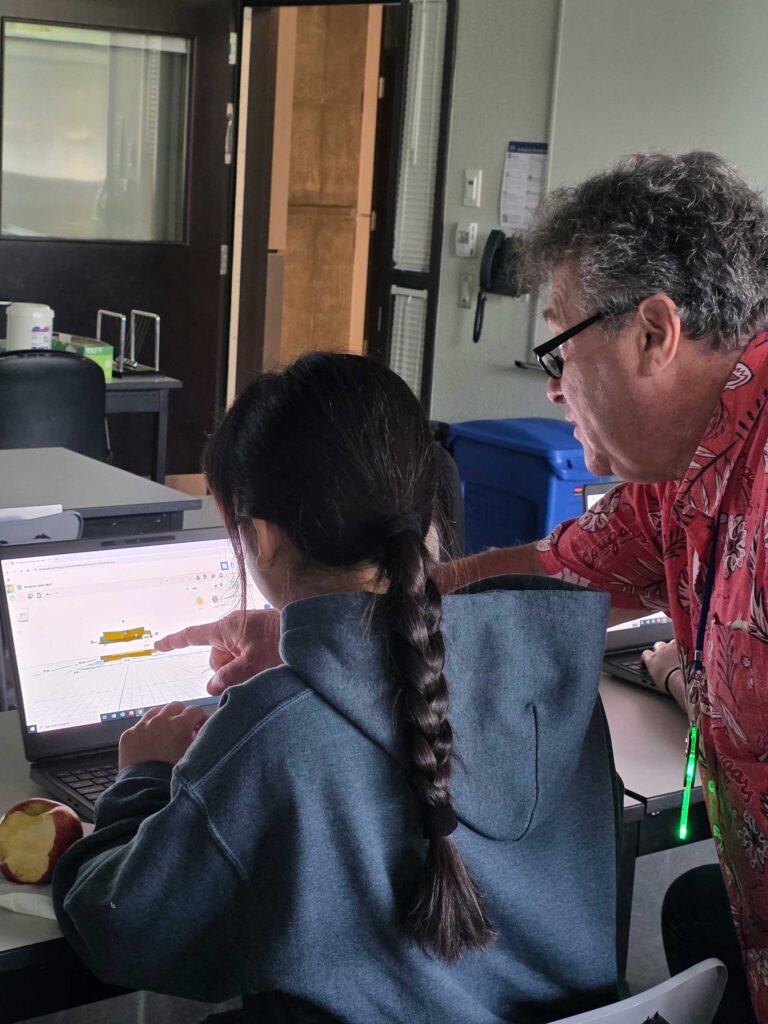
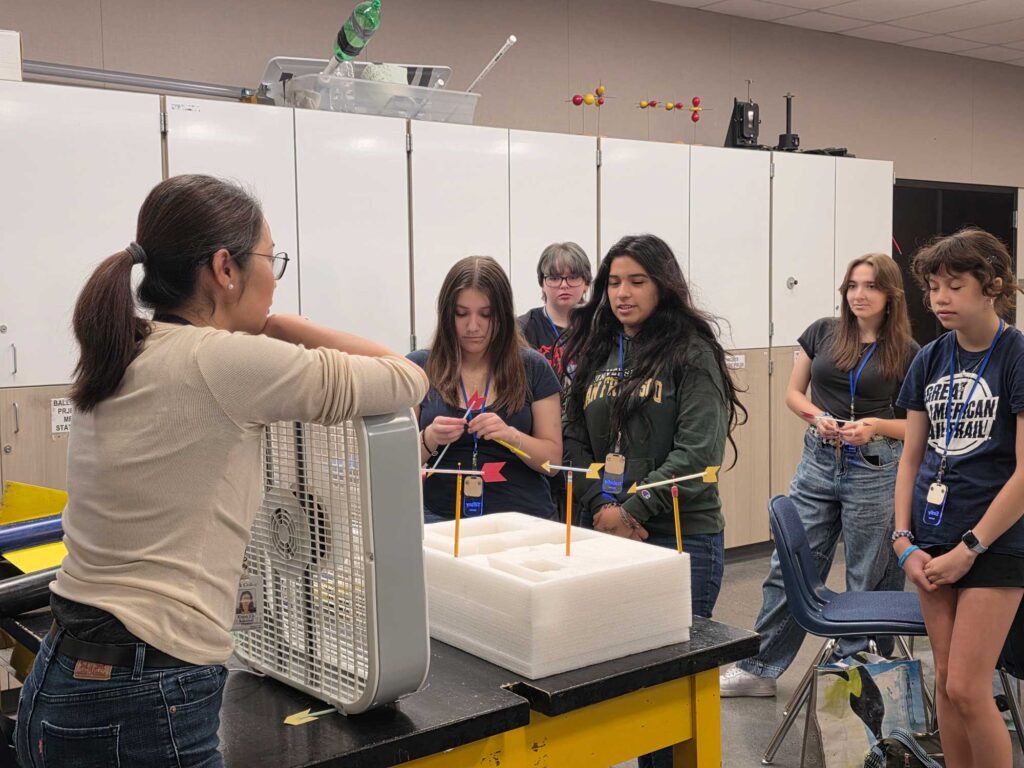
Just down the hall of the STEM building, another group of students launched their learning towards the sky – literally – by assembling aerodynamically sound rockets. But the session was a lot more than gluing parts together. Physics Professor Dr. Sophie Lin demonstrated the centers of gravity and pressure, how to stabilize flight, and how to conduct safe launches, ensuring each student’s rocket would successfully and safely leave the ground.
Math met art on the following days, when students explored symmetry with Professor Sarah Luther using colorful tiles. Then, Professor Brian Miyake took his group outdoors to lead an inspiring session about surveying, giving students just a taste of all that field has to offer.
Sweet and Savory Science
In the afternoons, the young scientists donned aprons and hairnets and took their learning to the sweetest classroom there is – The Tod and Maxine McClaskey Culinary Institute. The institute had split between two distinct aromas – one side warm and sugary, the other rich with the tang of fermentation and spice.
Chef Alison, in her first and final year leading STEM camp ahead of retirement, walked her students through the process of baking cookies, explaining the chemistry behind the ingredients. Students, some confident and others baking for the first time, poured vanilla and measured flour, learning how precision in cooking is just another form of science. To make it extra special, students used the cookie cutters they had created in their engineering sessions.
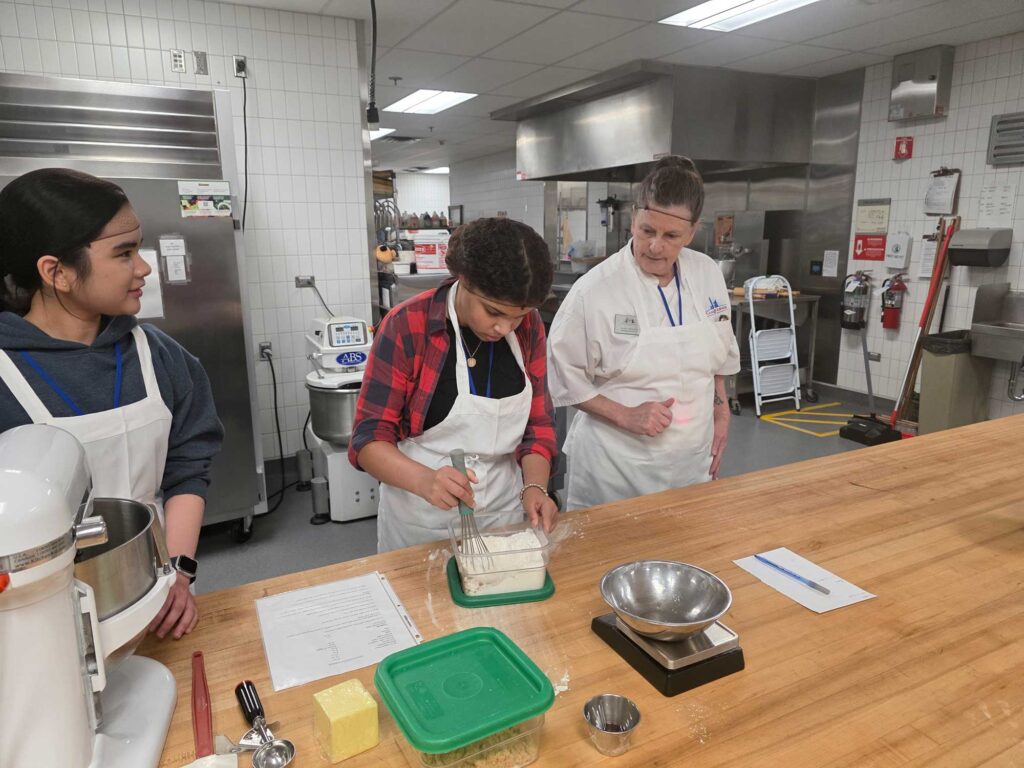
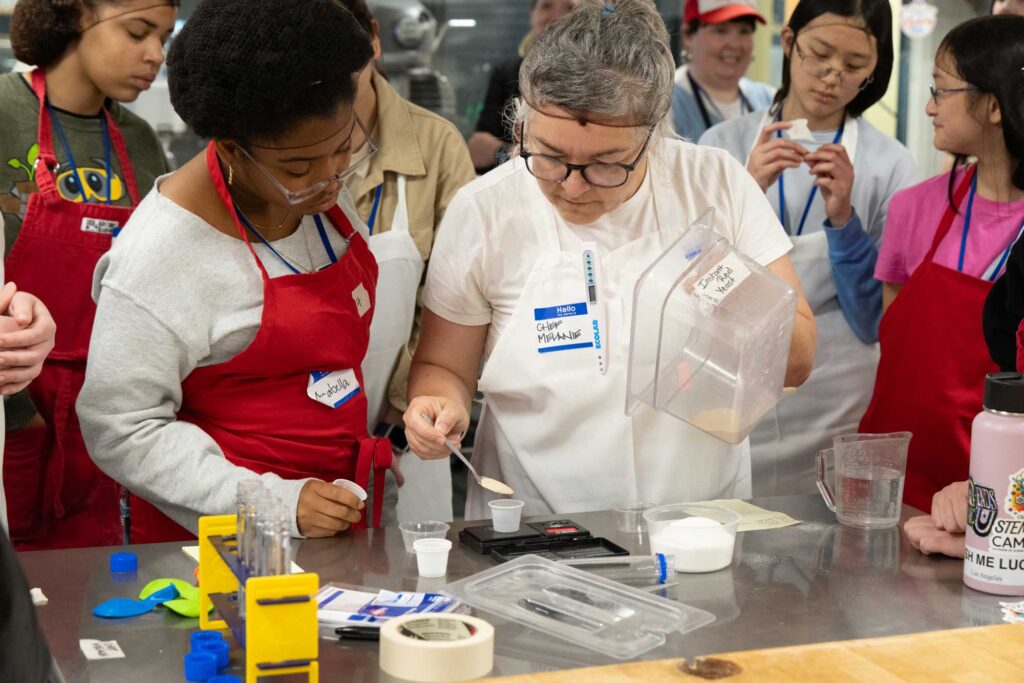
Alongside the tactile experience of baking seitan, Chef Melanie also showed students how to make an Amish soft pretzel. Gluten once again took center stage as they learned how it formed when the dough was mixed at different speeds. They also tested the “windowpane” method by holding the dough up to the light – “to make sure it’s strong enough that it won’t break, but delicate enough to let the light shine through,” one student explained.
Chemistry was at the forefront of their minds when they learned the reaction a baking soda wash has on a pretzel, giving its skin a darker color without overbaking the bread. One young scientist also incorporated physics into his lesson, rolling the dough between his hands in the air so that he could let gravity stretch it out into the perfect pretzel length.
In the next kitchen, it was all about the flavor. Chef Sonny demonstrated how to make cheese from scratch while Chef Amanda walked campers through the process of making ginger beer, explaining fermentation and the surprising truth that commercial ginger ale often contains no actual ginger. One camper declared the ginger beer her favorite activity of the week, marveling at the authenticity of the homemade beverage. Color met spice when students grated an array of fresh vegetables and seasoned them with oils and herbs of their choosing, creating a delicious and healthy dish that came together through the power of science.
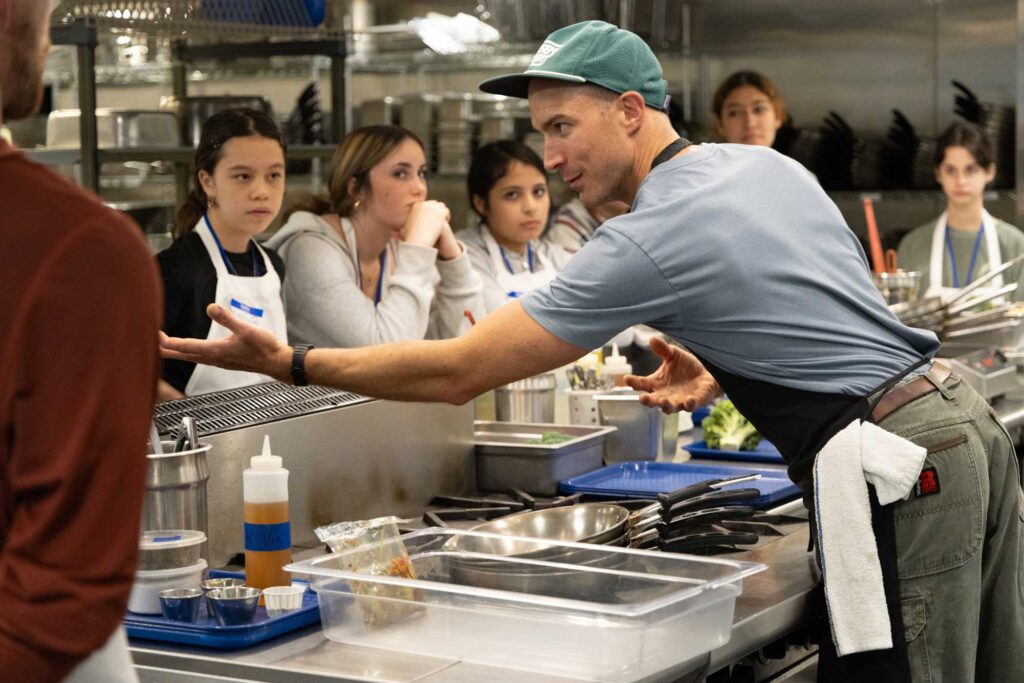
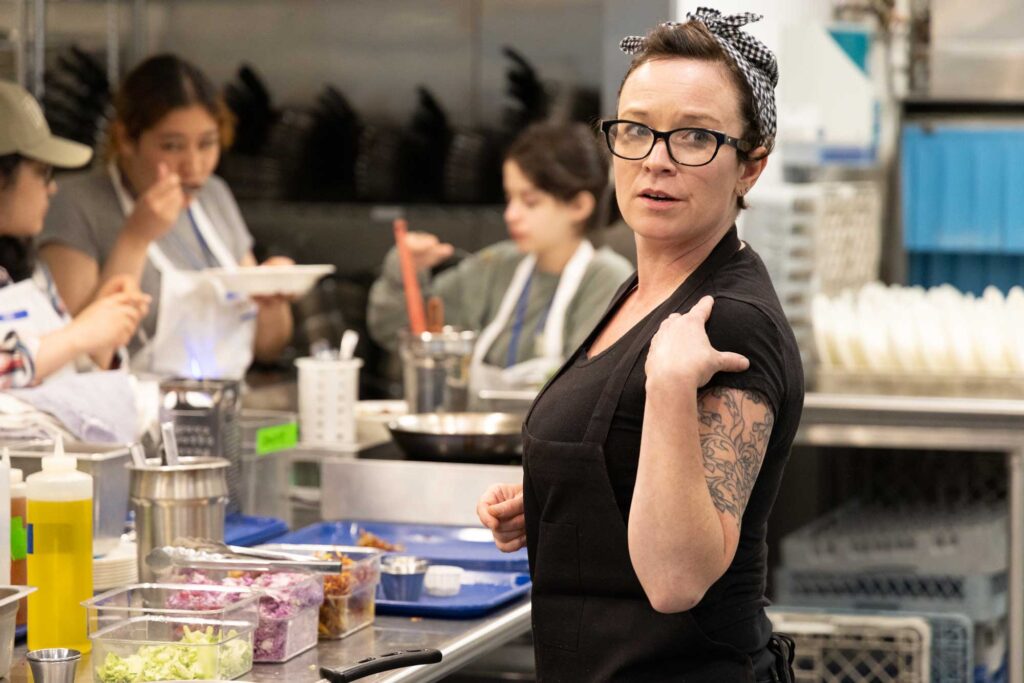
The week concluded with the STEM-Licious Fair in the college’s STEM building. Stations buzzed with activity: cookie decorating with the treats they had baked earlier, a photo booth capturing their smiles, and engineering challenges like the drop tower.
And then, of course, there was the FOOD – prepared by the students themselves during the graduation celebration, a full circle moment that was equal parts classroom and kitchen.
Learn More About the Camp’s Programs
Clark College’s STEM degrees and certificates equip students with hands-on, real-world experience in Science, Technology, Engineering, and Math. The program is anchored by a state-of-the-art, 70,000-square-foot STEM building featuring advanced labs, a high-tech makerspace, and unique learning tools like a 44-foot drop tower. With small class sizes, cutting-edge labs, expert faculty, and a collaborative learning environment, the program prepares students for transfer to a four-year university or entry into high-demand careers in today’s tech-driven world. Learn more about Clark’s STEM pathways.
Clark College’s Culinary program has offered professional baking and cuisine management education for more than 60 years. The college’s professional baking and cuisine management program offers a certificate of achievement in baking and pastry arts fundamentals (nine-month program) and an associate in applied technology degree in professional baking and pastry arts management (two-year program). Learn more about Professional Baking and Pastry Arts and Cuisine Management at the Tod and Maxine McClaskey Culinary Institute.
